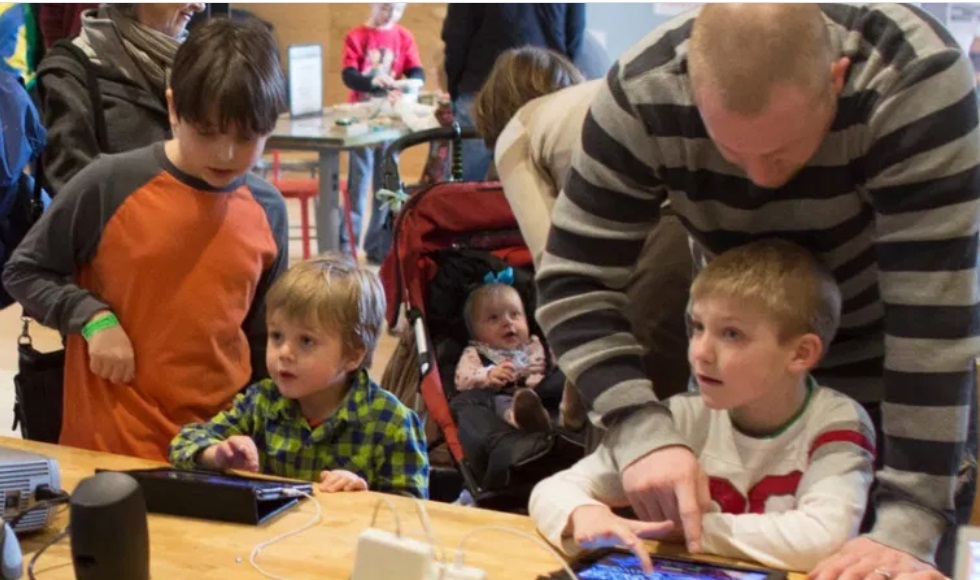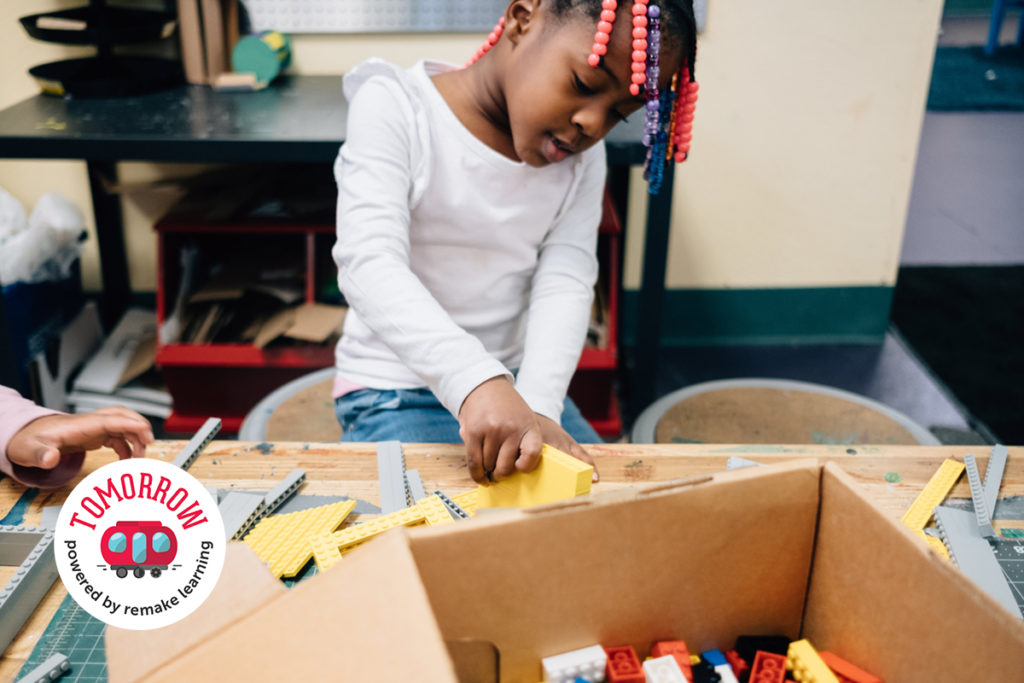
What if every city had a learning ecosystem?
By Melissa Rayworth
When the seeds for Pittsburgh’s learning ecosystem were planted a decade ago, pandemics were the stuff of history lessons and Hollywood movies. The goal was simply to use the strengths of the whole community to support young learners.
Year by year, collaboration grew among K-12 schools, science centers, museums, universities, nonprofits, foundations, parks, maker spaces and local businesses. Each collaborative project represents another step toward a tomorrow where students are prepared for their 21st-century lives and communities can tackle long-standing problems like social injustice.
So while none of this was designed with a real-life pandemic in mind, this connected ecosystem – and the flexible thinking it encourages – helped the Pittsburgh region cope when COVID-19 emerged.
Creative solutions sprouted quickly: Cornell School District secured WiFi access for all of its students thanks to collaboration between the University of Pittsburgh, Carnegie Mellon University, local businesses and a nonprofit called Meta Mesh.
The nonprofit Circles Greater Pittsburgh took up the mission of getting digital devices to all learners by coordinating laptop donations from Duolingo, the Pittsburgh Penguins and others, as part of the Pittsburgh Learning Collaborative.
The Carnegie Science Center built out their online offerings to make sure all kids had free access to science and technology. Other local museums did the same, helping to keep kids excited about learning. And out-of-school-time providers swiftly opened as school day Learning Hubs, setting the stage for new levels of post-pandemic collaboration.
These months haven’t been easy. But families have been better able to withstand the disruption of schooling – and will be better able to tackle learning loss and inequity going forward – thanks to the learning ecosystem in the region.
That leads us to a powerful question: What if every region of the country had this same advantage?

A national solution to a national problem
The issues Pittsburgh faced as it began growing its learning ecosystem remain at play in cities nationwide: Today’s education system was never designed to meet modern learners’ needs.
“This incongruity has heaped systemic problems upon individual educators, blunted the effectiveness of reforms, and shortchanged the nation’s most vulnerable young people — outcomes exposed and exacerbated by COVID-19,” Gregg Behr wrote in a proposal published in February by the Day One Project.
Behr, the executive director of the Grable Foundation, is the founder and co-chair of Remake Learning. This network, which has grown to include more than 1,000 members across a wide range of sectors, is the connector that has helped build and grow southwestern Pennsylvania’s learning ecosystem.
In his Day One proposal, Behr advocates for spreading this successful approach to communities nationwide.
“Building back better in a post-pandemic United States will require federal investments not only in schools, but in ‘learning ecosystems’ that leverage and connect the assets of entire communities,” Behr writes in this proposal. “Tasked with studying, seeding, and scaling these ecosystems in communities across the country, a White House Initiative on Community Learning Ecosystems would signal a shift toward a new education model, positioning the United States as a global leader in learning.”
The need, Behr notes, is clear: “Despite the invaluable, even heroic work of American educators, schools alone are no longer sufficient for addressing the complex needs of today’s learners — a fact made plain by COVID-19.”
To meet that need, families and educators are committed to building something new in the pandemic’s aftermath.
“There’s a huge opportunity now to not go back to ‘normal,’ but to actually invent a whole new way of organizing and supporting and credentialing learning,” Kelly Young, president of Education Reimagined, told Remake Learning’s Tomorrow campaign last year.
Behr proposes that the federal government should begin by creating a national commission to study learning ecosystems in the U.S. and abroad to identify best practices. Policy could then be designed to strengthen ecosystems that exist and help new ones take root.
The learning ecosystem model lends itself perfectly to this process because it’s all about freely sharing ideas.
Last fall, the global nonprofit HundrED reported on 16 innovative, easily scalable practices that began in learning ecosystems in the regions where the Remake Learning Days Across America festival will be held this year. These innovations, collected in the Learning Forerunners Across America report, can be easily replicated and adapted in other communities.
This same focus on sharing ideas can be seen in the work of organizations like the Washington, D.C.-based Afterschool Alliance, the national nonprofits CommunityShare and MakerEd, and in the global community of practice created by STEM Learning Ecosystems.
By harnessing the collective discoveries made by organizations like these, a national initiative to develop learning ecosystems would transform the way American students learn – and the way communities prepare young people for the future.
“While schools have long been bastions of progress thanks to the work of educators, the current system’s one-size-fits-all model was never designed for the connected, quickly changing world in which students now live,” Behr says. “Rather than reforming the current model, learning ecosystems augment and transform it.”
Learn more about the call to invest in community learning ecosystems and create a White House Initiative here.
This article is part of a series for “Tomorrow” powered by Remake Learning. “Tomorrow” will explore – through virtual events, grantmaking, and storytelling – what we can do today to make tomorrow a more promising place for all learners. Follow along or share your hopes for today’s young people using the hashtag #RemakeTomorrow and tagging @RemakeLearning. Learn more about Remake Learning here. And read more “Tomorrow” articles published on Kidsburgh.